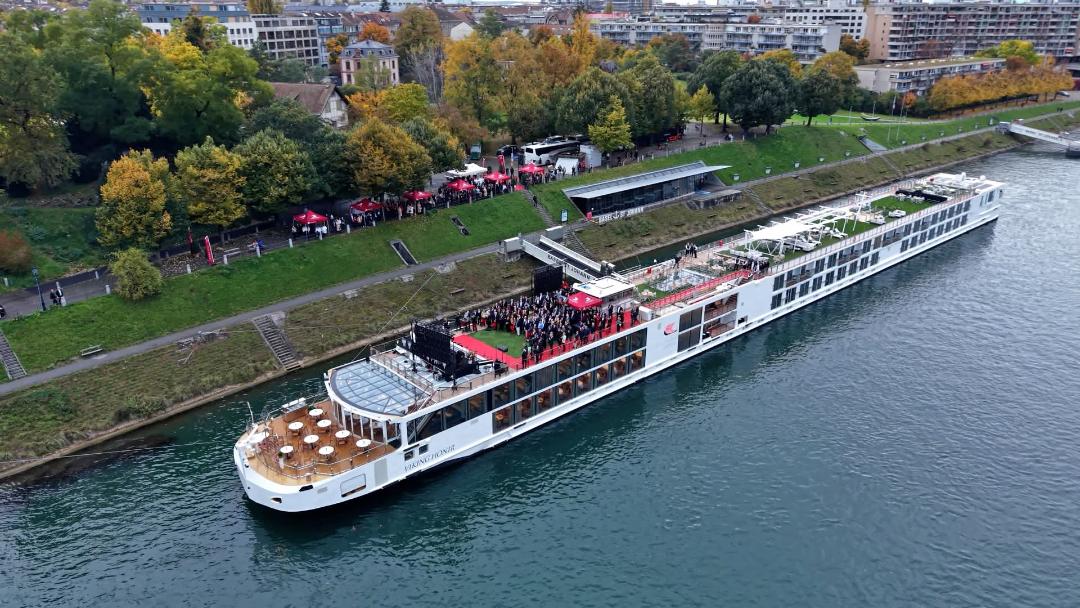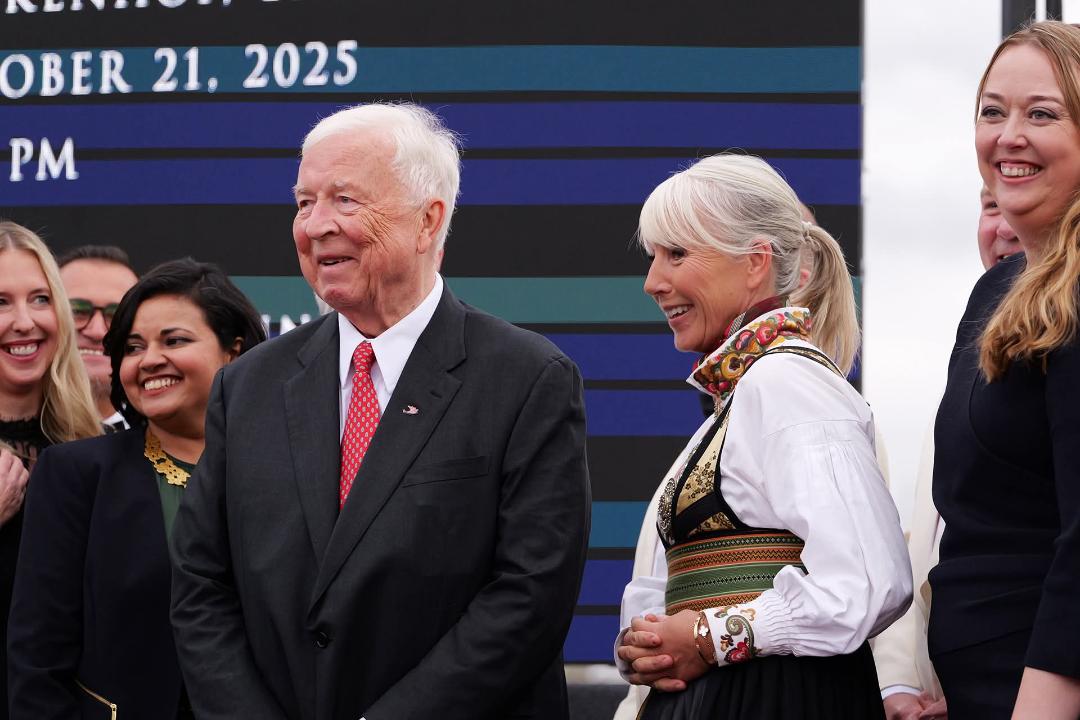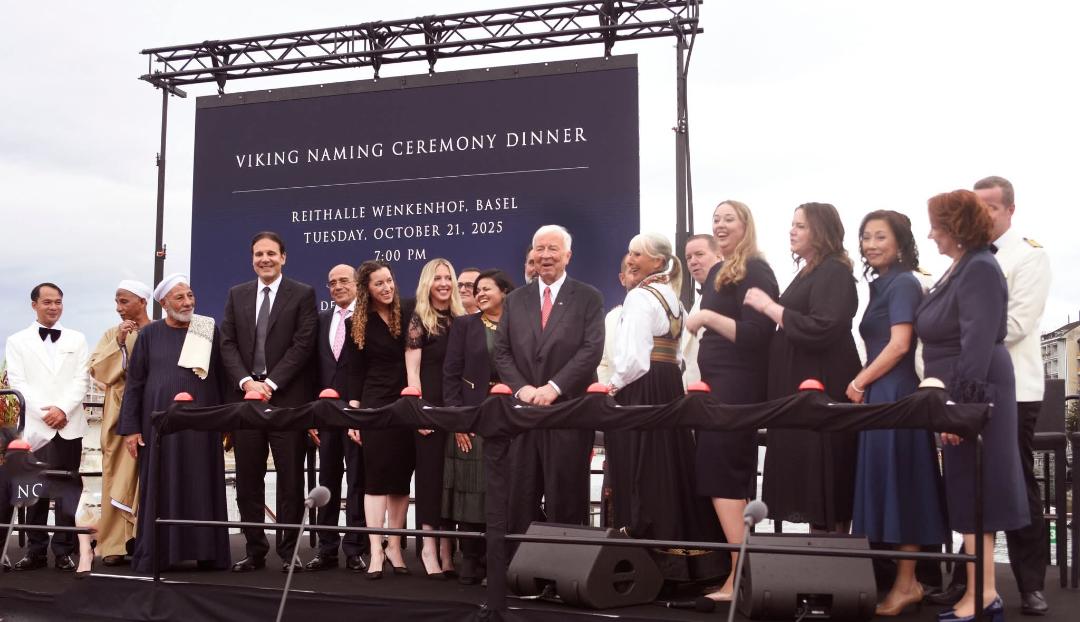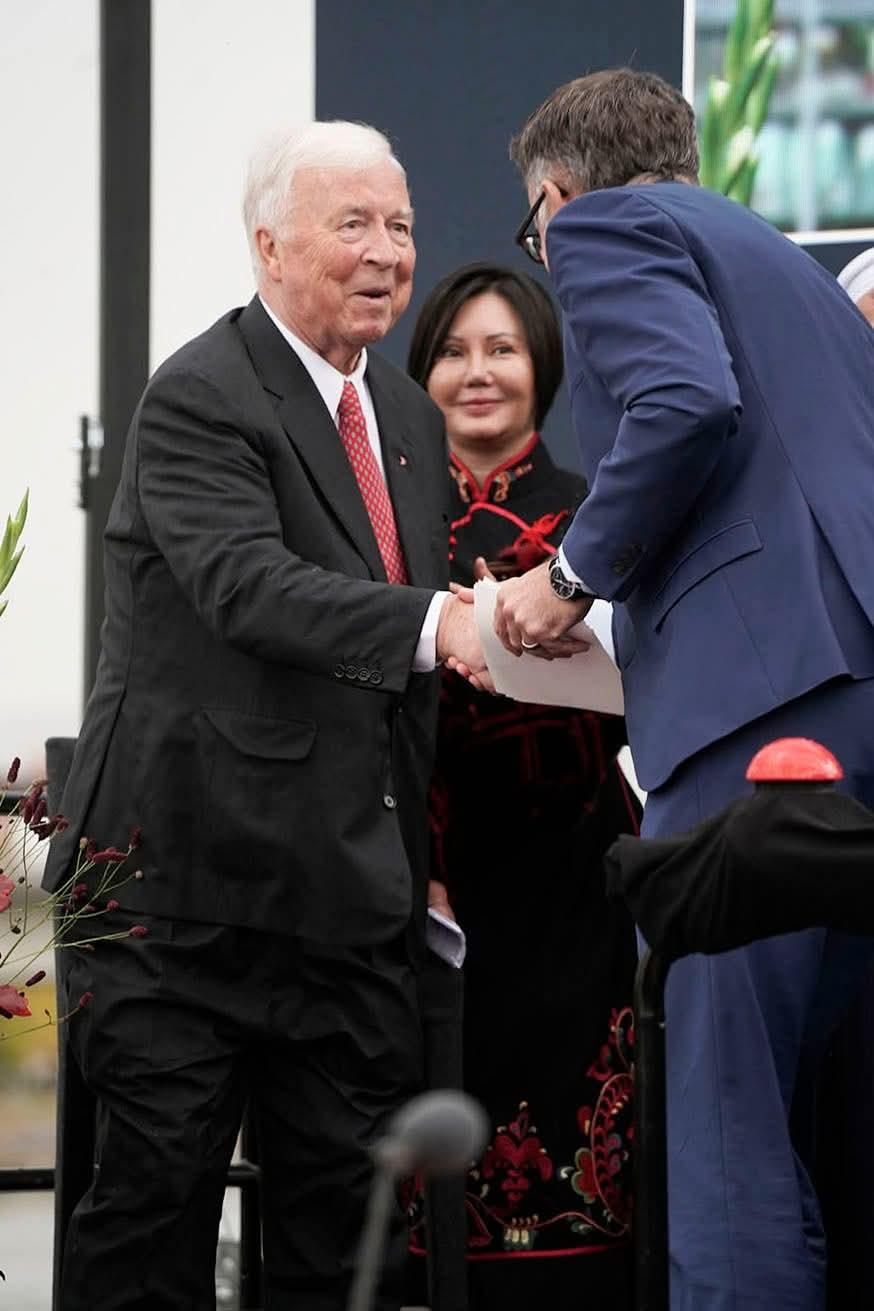TRAVEL ADVENTURES . . . Viking Celebrates 100 Ships Around the World
with Ceremony Naming Nine Newest River Ships Across Six Countries 
Historic Milestone Continues Viking’s History of Connecting Curious Travelers
in Every Corner of the Globe Viking® (www.viking.com) (NYSE: VIK) recently announced the naming of its nine newest river ships—including the company’s 100th ship—during a simultaneous ceremony in Basel, Switzerland. Of the nine new river ships, the Viking Annar, the Viking Dagur, the Viking Eldir and the Viking Honir will sail Viking’s most popular itineraries along the Rhine, Main and Danube rivers. The Viking Nerthus, the Viking Gyda and the Viking Tonle sail the Seine, Douro and Mekong rivers, respectively. The two other new ships named today—the Viking Thoth and the Viking Amun—sail the Nile River. The ceremony also marked a major milestone—Viking now has more than 100 ships across its award-winning river, ocean and expedition fleet, more than any other cruise line. This achievement reflects the company’s history of industry-leading innovations. 
Viking Chairman, CEO Torstein Hagen & Daughter Karine Hagen, Executive VP, proudly welcome guests in Basil for the 100 Viking Ships around the world ceremony with naming of nine new ships. Today we are proud to name our newest river ships and to honor the nine distinguished members of our extended Viking family serving as their godparents,” said Torstein Hagen, Chairman and CEO of Viking. “We have always been quite a bit different from others in the travel industry—we like to be contrarian. Over the last 28 years, we have grown from four ships to more than 100—a fleet size that no other line has achieved—and we have done so because of our innovative approach. First, we modernized river voyages; then we reinvented ocean voyages and perfected the expedition experience. We look forward to continuing our leadership in experiential travel in the years to come.” Viking Naming Ceremony 
Chairman & CEO Torstein Hagen (Center) and Viking Distinguished Guests Celebrating 100 Ships Naming Celebration For thousands of years, it has been an ancient maritime tradition for each new ship to have a ceremonial godmother. Viking has adapted this custom and, for its ships in Egypt, extended it to include godfathers. Viking’s tradition is to appoint individuals who have made an impact—either in the world, or in the life of Viking. For its nine newest river ships, the company invited colleagues and partners in the extended Viking family to serve as godparents, including: - Allison Becker, Senior Vice President, General Counsel, Viking—Godmother of the Viking Nerthus
- Sara Conley, Senior Vice President of Brand, Creative and Communications, Viking—Godmother of the Viking Dagur
- Chitra Goswami, Senior Vice President of Finance, Viking—Godmother of the Viking Gyda
- Yumi Kim, Senior Vice President of Finance, Europe, Viking—Godmother of the Viking Eldir
- Michelle Patterson, Senior Vice President, Corporate Controller, Viking—Godmother of the Viking Annar
- Laura Perlman, Senior Vice President of Marketing Planning, International & Product, Viking—Godmother of the Viking Tonle
- Michele Saegesser, Vice President, Trade Development and Training, Viking—Godmother of the Viking Honir
- Youssef Fouad Amin, Chief Executive Officer & Chairman, Sherry Nile Cruises—Godfather of the Viking Thoth
- Sherif El Banna, Chief Executive Officer, Cosmos Egypt—Godfather of the Viking Amun

Viking Chairman & CEO Torstein Hagen on the Viking Honir in Basel The naming ceremony took place in Basel on board the Viking Honir and was connected virtually to the eight other new ships, which were located across five other countries around the world. The Viking Nerthus was in Paris, France; the Viking Dagur, the Viking Eldir and the Viking Annar were in Rostock, Germany; the Viking Gyda was in Porto, Portugal; the Viking Tonle was in Mỹ Tho, Vietnam; and the Viking Thoth and the Viking Amun were in Luxor, Egypt. Guests at the naming event enjoyed performances by Sissel Kyrkjebø, one of the world’s leading crossover sopranos and godmother of the Viking Jupiter®; Norwegian violinist Tor Jaran Apold; the Viennese Residence Orchestra; and a Basel girls’ choir. Viking’s Award-Winning Fleet The naming of Viking’s newest river ships follows a string of recent accolades for the company. Viking was rated #1 for Oceans and #1 for Rivers by Condé Nast Traveler for the fifth year in a row in the 2025 Readers’ Choice Awards. Viking is also rated a “World’s Best” by Travel + Leisure—no other travel company has simultaneously received such honors by both publications. Viking was also recognized in U.S. News & World Report’s 2025 Best Cruise Lines rankings as Best Luxury Line, Best Line for Couples and Best Line in the Mediterranean for the fourth consecutive year. Viking’s ocean ships continue to be rated and “Recommended” as part of the Forbes Travel Guide Star Awards, an annual independent evaluation for luxury travel brands. Additionally, Viking received seven awards across its ocean, river and expedition categories in the Cruise Critic 2024 Best in Cruise Awards. About Viking Viking (NYSE: VIK) is a global leader in experiential travel with a fleet of more than 100 ships, exploring 21 rivers, five oceans and all seven continents. Designed for curious travelers with interests in science, history, culture and cuisine, Chairman and CEO Torstein Hagen often says Viking offers experiences For The Thinking Person™. Viking has more than 450 awards to its name, including being rated #1 for Rivers and #1 for Oceans five years in a row by Condé Nast Traveler in the 2025 Readers’ Choice Awards. Viking is also rated a “World’s Best” by Travel + Leisure—no other travel company has simultaneously received such honors by both publications. For additional information, contact Viking at 1-800-2-VIKING (1-800-284-5464) or visit www.viking.com. ♦ ♦ ♦ SOUTHWEST ANNOUNCES NEW SEATING CHANGES FOR 2026 
The airline has operated under an open-seating policy, sometimes referred to as a cattle call, for nearly 55 years. Gone are the days of waking up early to check in and secure a good boarding group. Instead, like every other airline, customers will be assigned a seat number. Equally significant, it will add seats with extra legroom and charge more for them. The open-seating policy, while divisive, was a core part of the airline’s identity. When Southwest announced the news of its pending elimination in July 2024, the airline said it had conducted “extensive research” before making the change and found that 80% of Southwest customers and 86% of potential customers prefer assigned seating. ♦♦♦
|










